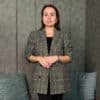Global Lessons from the Red Zone: The Infectious Disease Doctor Bridging Kazakhstan and America
When we speak of COVID-19 medical heroes, the headlines usually point to New York, Milan, or Wuhan. Yet thousands of stories of courage and professionalism unfolded far from global capitals — in regions where doctors battled the pandemic under far more difficult conditions. One such story is that of Dr. Fariza Sultan, an infectious disease specialist from Aktobe, Kazakhstan.
From Classroom to COVID Hospital
Fariza Sultan earned her medical degree from the West Kazakhstan Marat Ospanov State Medical University in 2015, completed a clinical internship in family medicine, and then a residency in infectious diseases — including pediatric cases — at the S.D. Asfendiyarov Kazakh National Medical University in Almaty.
Her early career began at the I.K. Zhekenova Infectious Diseases Hospital in Almaty, where she treated patients during an outbreak of meningococcal infection. It was her first real stress test — rapid decision-making, high patient volumes, and community education.
By 2019, as a certified specialist in adult and pediatric infectious diseases, she joined the Regional Clinical Infectious Diseases Hospital in Aktobe. From the very first days of COVID-19, she found herself on the frontlines — in the red zone.
Three Years in the Red Zone
As COVID-19 spread across Kazakhstan, Dr. Sultan was assigned to the specially designated infectious disease hospital in Aktobe. She treated patients with severe viral pneumonia, gastrointestinal infections, hepatitis, and meningitis. She also worked with pregnant women infected with COVID-19 — cases requiring maximum clinical precision and emotional sensitivity.
“Each situation felt like a minefield,” she recalls. “We had to make fast, intuitive decisions, often without access to lab diagnostics. The priority was to save lives — and never let the patient lose hope.”
During staff shortages, she served as acting department head, led online training for rural physicians, and frequently appeared on television, explaining in clear terms how people could protect themselves. Her voice in the media was as steady and confident as in the ICU.
“We were treating patients and training others at the same time. We supported families, and answered their questions. I realized my knowledge wasn’t just medical — it carried social responsibility,” says Fariza.
Her commitment was honored with regional health ministry awards and an official letter of appreciation from the Governor of the Aktobe Region.
When Personal Experience Informs Global Strategy
As of spring 2025, the U.S. is facing a resurgence of the COVID-19 LP.8.1 subvariant, now accounting for nearly 70% of new cases. Meanwhile, the FDA has restricted access to booster vaccines for healthy individuals under 65 — a decision that has raised concerns among public health experts.
Fariza warns that decreasing awareness and reduced access to prevention could repeat past mistakes.
“COVID hasn’t gone away. It mutates, evolves, and adapts. The real threat isn’t the virus itself — it’s when we stop taking it seriously,” she emphasizes.
From Clinical Practice to Global Scholarship
Alongside her core professional work, Fariza has been actively contributing to the field of medical science through international research and academic publishing. Her first peer-reviewed article, “Clinical Features of Salmonellosis Caused by Rare Salmonella Groups,” was published in World Science in 2018, drawing attention to under-recognized pathogens and the challenges of their clinical diagnosis.
In 2025, her academic efforts expanded with two new publications addressing timely and complex issues in infectious disease. The first, “Clinical Variability of Epstein–Barr Virus Infection in Children and Adults: Diagnostic Challenges,” explores the age-dependent manifestations of EBV and proposes more precise diagnostic frameworks. The second, “Post-COVID Syndrome in Pediatric Patients: Clinical Manifestations, Diagnosis, and Management Strategies,” offers a comprehensive approach to identifying and managing long-term COVID in children, based on international clinical models. Through these works, Fariza demonstrates a clear commitment to advancing evidence-based medicine and bridging research with real-world healthcare challenges.
She has also presented at the 56th Scientific Conference of West Kazakhstan Marat Ospanov State Medical University and the Student Research Conference at S.D. Asfendiyarov Kazakh National Medical University, focusing on epidemiology and public health awareness.
Today, Fariza is also an independent peer reviewer for the international journal Cold Science. Over the past year, she has evaluated research papers on cardiovascular bioengineering, autoimmune neurological diseases, and dermatovenereology. Her sharp analytical skills and deep understanding of infectious pathology make her a valued voice in the international research community.
“Peer review is my way of contributing to global science. It’s no less important than treating patients — it helps set standards and elevate knowledge,” she says.
Looking Ahead: Collaboration as the Future
Fariza plans to continue practicing as an infectious disease specialist in the U.S. while engaging in clinical research and medical education. She sees international cooperation not as a theory but as a necessity:
“What we experienced in Kazakhstan can help in California — and vice versa. The pandemic taught us that medical science is a network, not a fortress.”
Final Thoughts
The story of Dr. Fariza Sultan is not just a chronicle of medical bravery. It’s proof that a young physician, working at the regional level, can influence global outcomes. At a time when society is weary of COVID-19, voices like hers are vital — reminders that fighting infectious diseases demands memory, preparedness, and unwavering commitment.














